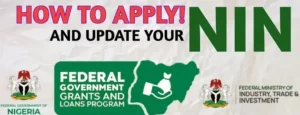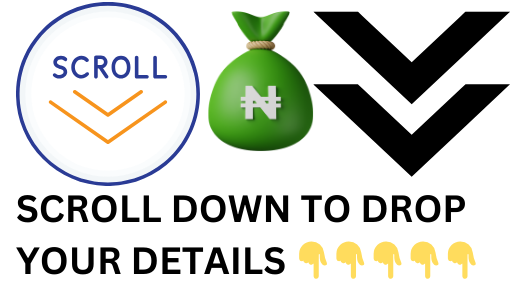U.S. Visa Sponsorship Opportunities: Your Gateway to the American Dream
The United States, a global economic leader, offers unparalleled career opportunities for skilled professionals worldwide. If you’re looking to work and live in the U.S., securing visa sponsorship is a critical step. However, navigating the complex U.S. immigration system can be daunting.
In this guide, we’ll break down everything you need to know about U.S. visa sponsorship opportunities, including types of visas, eligibility requirements, and strategies to secure sponsorship from top U.S. employers.
Whether you’re a skilled worker, student, entrepreneur, or temporary worker, this guide will equip you with the insights needed to maximize your chances of working in the U.S. legally.

What is Visa Sponsorship?
Visa sponsorship is when a U.S. employer, educational institution, or relative supports a foreign national’s visa application to enter and work in the country legally. The sponsor takes legal and financial responsibility, ensuring compliance with U.S. immigration laws.
Key Aspects of Visa Sponsorship:
Employer Support – Companies sponsor foreign employees by filing necessary immigration paperwork.
Financial Responsibility – Sponsors may need to prove they can support the applicant’s living expenses.
Legal Compliance – Sponsors must ensure the applicant follows U.S. immigration regulations.
Types of Visa Sponsorship:
Employment-Based Visa Sponsorship – U.S. employers sponsor skilled professionals (H-1B, L-1, O-1, etc.).
Family-Based Visa Sponsorship – U.S. citizens or green card holders sponsor relatives.
Student Visa Sponsorship – Schools or universities sponsor international students (F-1, J-1).
Pro Tip: Different visa types have unique requirements, so it’s crucial to choose the right one based on your qualifications and job prospects.
Who is Eligible for U.S. Visa Sponsorship?
Eligibility for a U.S. work visa depends on several factors, including your skills, nationality, and employer sponsorship capabilities.
Key Factors That Affect Eligibility:
Nationality – Some visas are only available to citizens of specific countries (e.g., E-3 for Australians, TN for Canadians/Mexicans).
Job Qualifications – Specialized skills, degrees, or work experience may be required (especially for H-1B or O-1 visas).
Employer Readiness – A U.S. employer must be willing to sponsor and file paperwork on your behalf.
Labor Market Conditions – Employers must prove that hiring a foreign worker won’t negatively impact U.S. citizens.
Top U.S. Visa Sponsorship Categories:
H-1B Visa – For highly skilled professionals (IT, finance, healthcare, engineering).
L-1 Visa – For multinational employees transferring to U.S. offices.
O-1 Visa – For individuals with extraordinary talent in arts, sciences, or sports.
TN Visa – For Canadian & Mexican professionals under the USMCA agreement.
H-2B Visa – For temporary, non-agricultural workers (hospitality, landscaping, etc.).
Top U.S. Companies Offering Visa Sponsorship
Many top U.S. employers actively sponsor foreign workers to fill skill gaps in their industries. If you’re targeting sponsorship, focus on companies known for hiring international talent.
Tech Companies Sponsoring H-1B & Other Work Visas:
Google – Software engineers, data analysts, AI specialists.
Amazon – Cloud computing (AWS), logistics, and engineering roles.
Microsoft – AI, cybersecurity, and cloud computing experts.
Apple – Product design, software, and hardware engineering.
Tesla – AI, engineering, and battery technology.
Consulting & Financial Firms Sponsoring Work Visas:
Deloitte – Consulting, IT, and financial services.
Accenture – Digital transformation and business consulting.
JP Morgan Chase – Investment banking and financial technology.
PwC & KPMG – Accounting, tax, and auditing roles.
Healthcare & Research Institutions Sponsoring Work Visas:
Johns Hopkins Medicine – Doctors, nurses, and researchers.
Mayo Clinic – Medical and biotech research professionals.
Pfizer & Novartis – Pharmaceutical research and clinical trials.
TIP: Use job search platforms like LinkedIn, Indeed, and MyVisaJobs to find sponsorship opportunities!
Documents Needed for a U.S. Work Visa Sponsorship
Your visa application requires documentation from both you and your employer. Here’s a checklist to ensure your application is complete:
Required Documents from Employers:
Form I-129 – Petition for Nonimmigrant Worker (submitted to USCIS).
Labor Condition Application (LCA) – Proves that hiring a foreign worker won’t harm U.S. wages.
Job Offer Letter – Must outline job role, salary, and conditions.
Employer Financial Proof – Tax returns, registration documents, and stability reports.
Required Documents from Employees:
Valid Passport – At least 6 months beyond intended U.S. stay.
Form DS-160 – Nonimmigrant Visa Application (submitted before interview).
Educational & Work Certificates – Proof of skills, degrees, and certifications.
Previous U.S. Visa (if applicable) – Any past immigration history.
How to Find U.S. Visa Sponsorship Opportunities
Finding employers willing to sponsor a U.S. visa requires strategy. Follow these steps to boost your chances:
Target High-Demand Industries – IT, healthcare, finance, and engineering offer more sponsorships.
Use Job Search Filters – Search for “Visa Sponsorship” jobs on LinkedIn, Indeed, and Glassdoor.
Apply to Multinational Companies – Companies with global operations are more likely to sponsor visas.
Network with Industry Professionals – Engage with employees of sponsor-friendly firms on LinkedIn.
Leverage Staffing Agencies – Firms like Robert Half and TEKsystems help place foreign workers in U.S. roles.
PRO TIP: Research companies on H1BGrader.com & MyVisaJobs.com to check their sponsorship history!
FAQs About U.S. Visa Sponsorship
Can a Friend Sponsor Me to the U.S.?
- No, friends cannot directly sponsor a work visa. Only employers, relatives, or institutions can sponsor visas.
How Much Bank Balance is Required for a U.S. Visa?
- Tourist Visa (B-1/B-2): $5,000–$10,000 USD for short stays.
- Student Visa (F-1): $20,000–$60,000 USD (based on tuition & living costs).
- Work Visa (H-1B): No personal bank balance required (sponsor handles financials).
Final Thoughts: Take Control of Your U.S. Visa Journey
Securing a U.S. work visa is challenging but achievable with the right approach. By understanding visa types, targeting sponsor-friendly employers, and preparing a strong application, you can boost your chances of success.
- Stay proactive – Research companies, network, and apply strategically.
- Prepare your documents – Ensure everything is accurate and complete.
- Stay updated – Immigration rules change frequently; always check for the latest updates.
Your dream of working in the U.S. is within reach start your journey today!
